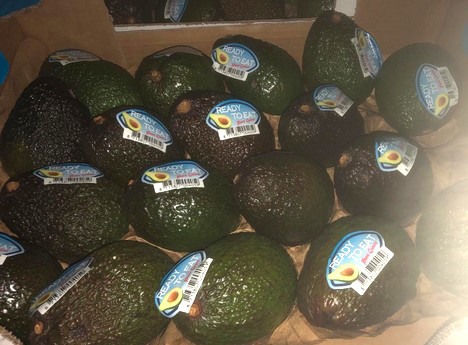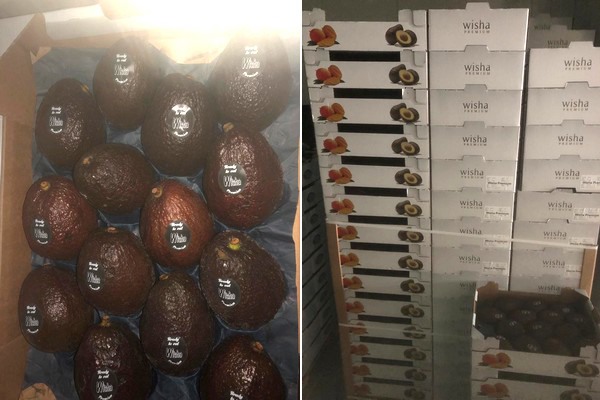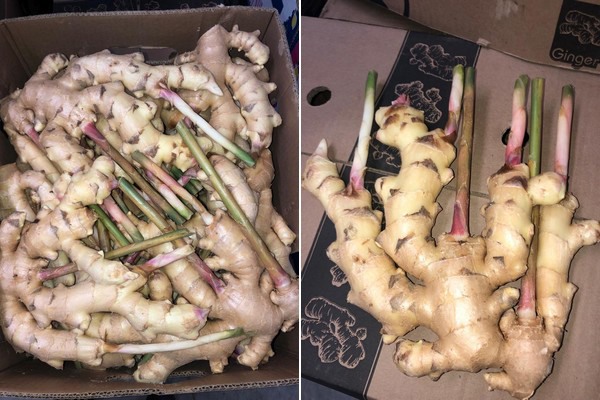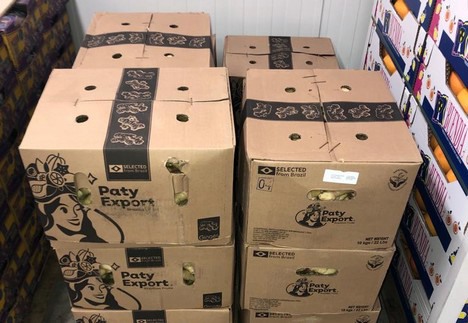Due to continued high freight rates, inflation and the annual change of season, volume availability - especially for mangoes and avocados - has come under pressure. "We are currently distributing mostly air-freighted mangoes from Peru, and although there are still customers who appreciate this produce, the demand is rather subdued. Due to the natural disasters in Peru, less volume is now being exported towards the EU, which then balances out to some extent due to lower demand. A few years ago, on the other hand, such a slump in volume would have been much worse," says Klaus Jürgen Braun, buyer and seller at the Stuttgart-based trading company Werner Ebert & Co., based at the local wholesale market.

Puro Gusto brand avocados ripe for eating.
The avocado market is currently characterized by shortages and bottlenecks, Braun notes. "Many source countries are now involved in global trade, but no country is able to offer the right volumes. Colombia is exporting less than usual this time of year. South Africa is late compared to other years. Chile's export season ends relatively early this year, and Mexico's quality is slipping a bit. The season in Spain and Portugal is now coming to an end, the same is true for Israel, which however presents only a small market share in global exports. In short, everyone is now looking at Peru. In both countries of origin, however, larger export volumes are not expected for another two to three weeks." Supplemental volumes are also coming from East Africa, such as Tanzania and Kenya.

According to Braun, the avocado market is in the classic transition phase. "In this month, the commodity is traditionally most expensive and we are now at some 1-2 euros/colli above last year's level. However, I dare to say that we have already passed the peak and that prices will only fall from now on. We are assuming that the tight market will gradually recover in the coming weeks." Braun also points to fruit ripening in this context. "Due to the fact that every batch is urgently needed, suppliers lack the time to ripen the goods according to usual 'ready-to-eat' standards. That means some of the produce arrives at retailers unripe."

Fresh ginger from Brazil is being flown in.
Difficulty in planning shapes exotics business
In general, demand for exotics is down somewhat due to inflation and changing buying patterns, he said. "Fancy items like passion fruit and grenadilla are always bundled on mixed pallets along with filler items like sweet potato or ginger. The more difficult conditions make it much more difficult to plan the business and get these mixed pallets partially full. This also means that we no longer have to offer everything that the market could provide, but we are increasingly focusing on the common items," Braun continues.

Young ginger in a carton.
Rising demand for fresh ginger
As a recognized fruit wholesaler and full-range supplier, Ebert serves a broad clientele consisting of food retail markets, restaurateurs and specialty retailers. "Restaurateurs have not yet had an easy time of it since the beginning of the pandemic, and weekly market and specialty retailers are in turn struggling with existential fears because they lack new blood." Meanwhile, the experienced fruit merchant still sees new opportunities for surprising fresh products. "Young, fresh ginger, for example, is enjoying increasing popularity, especially at weekly markets and specialty retailers. At this time of year, the product is mainly sourced by air from Brazil and is much milder than dried ginger. In addition, because it is marketed fresh rather than dried, all the essential oils are still contained in the root."
Images: Werner Ebert GmbH & Co. KG
For more information:
Klaus Jürgen Braun
Werner Ebert GmbH & Co. KG
Langwiesenweg 30 (Großmarkt)
70327 Stuttgart
Tel.: 0711 / 48 04 51-0
Fax 0711 / 48 04 51-50
werner-ebert@werner-ebert.de
www.werner-ebert.de
